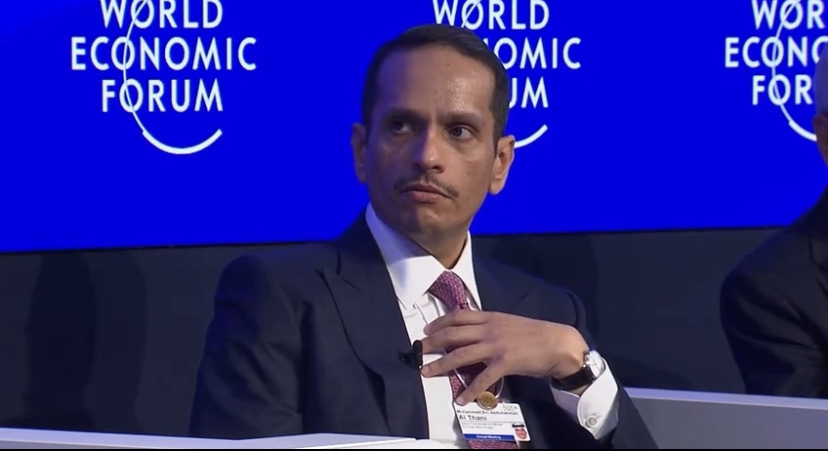The Taliban-led government has been introducing policies restricting women and girls’ access to work and education.
Qatar has vowed to stand with Afghan women as they continue to face irrational restrictions by the Taliban-led administration, Foreign Minister Sheikh Mohammed bin Abdulrahman Al Thani said on Tuesday.
In an interview with CNBC Middle East, Sheikh Mohammed said Qatar has been reaching out to the interim government to understand the rationale behind the restrictive policies towards women and girls.
The top diplomat said Doha cannot see such policies rationalised from either a religious or cultural perspective, and confirmed his country is currently involved in He consultations with other Muslim nations to “deal” with the situation.
“It’s just more and more provoking and making the situation much worse for them and for the Afghan people, we’ve been trying to reach out recently after these decisions take place. We’ve been trying also through other means jointly with other Muslim countries to talk to them and to go together,” Sheikh Mohammed said.
The interview, which took place on the sidelines of the World Economic Forum (WEF) in Davos, comes just weeks after the Taliban imposed yet more strict policies that prevent women and girls from working or accessing education in Afghanistan.
Last month, the acting Afghan government suspended university education for Afghan women and girls. Days later, the caretaker government banned Afghan women from working in local and foreign non-governmental organisations.
Qatar had voiced its concern over both moves at the time and urged the administration to review its decisions.
Addressing Afghan women directly in the interview, Sheikh Mohammed said Qatar will remain by their side.
“They will prevail as they’ve been prevailing before. We will stand with them, we will support them. We will not exert any effort in order to make sure that we are helpful for them and to make sure that these kinds of decisions are not happening,” Sheikh Mohammed said.
Speaking at a panel at the WEF on Tuesday, Sheikh Mohammed expressed his disappointment over the Taliban’s decision while stressing the need to maintain dialogue.
“We’ve been trying even to reach out to Kandahar and to have a dialogue with them, until now we didn’t succeed but we are in continuous consultation with other countries in the region, some Muslim countries,” Sheikh Mohammed said.
The Gulf state maintained its communication with the Taliban administration in Kabul even after the takeover on 15 August, 2021. It also facilitated talks between the Taliban and the west in an effort to address Afghanistan’s worsening humanitarian situation.
“From the beginning we’ve been trying our best to reach out to them either directly by us, but also by other countries in the region, especially the Muslim countries where we see them playing a major role in such issues,” the Qatari diplomat said.
Shortly after taking over Kabul, the Taliban promised a more open system of governance to contrast with its previous rule – which lasted between the late 1990’s and 2001 and saw devastating regression across the country.
Since the most recent takeover in 2021, Qatar has repeatedly called on the caretaker Afghan government to use the examples of Muslim countries, like Doha, where women play various roles in different sectors.
Qatar’s mediation role
Doha hosted the intra-Afghan talks between Afghanistan’s former government and the Taliban in 2020 in an effort to reach a political solution.
During the same year, it hosted talks between the US and the Taliban, where the Doha agreement was signed.
Commenting on the agreement at the WEF panel, Sheikh Mohammed said it cannot be expected to bring immediate peace, stressing that Afghanistan has been through decades of war.
“It’s a difficult journey to bring parties with disagreements together to reach an agreement, but it’s also more difficult to sustain the agreement,” he said.
The Qatari diplomat added that there was also an absence of proper dialogue between all sides that engaged in the deadly war.
“There was no real dialogue between the parties of the war themselves, I mean the inter-Afghan dialogue did not take place properly,” Sheikh Mohammed added.







